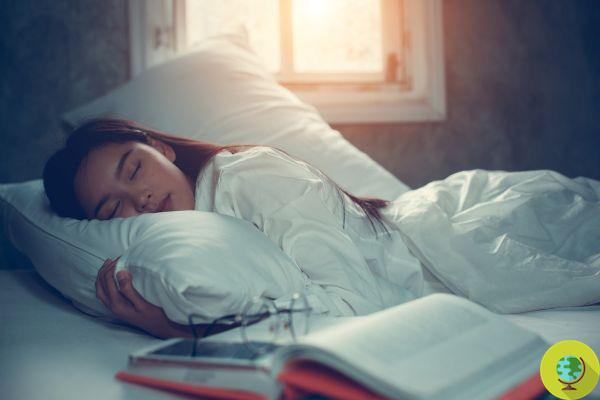
With a deep and regular sleep improves study performance. An obvious thing? Maybe not if you are very young. But it is not an impression, it is the result of a scientific study conducted by the Massachussets Institute of Technology (MIT) which found a clear correlation between sleep quality and average exams.
Don't store avocado like this: it's dangerous
Deep, regular sleep improves academic performance. An obvious thing? Maybe not if you are very young. But that's not an impression, it's the result of a scientific study conducted by the Massachussets Institute of Technology (MIT) which found a clear correlation between sleep quality and average exams.
Jeffrey Grossman, a professor at the prestigious US institute, was keen to find a correlation between physical exercise and academic performance of students in his course, 'Introduction to Solid State Chemistry', and thus monitored 100 engineering students with Fitbit, a popular smartwatch. that tracks a person's activity throughout the day, and has enrolled about a quarter of them in a cycle of fitness classes, checking the average of one semester's exams.
But the performance of those who had done physical activity was no different, in general, from that of those who had not engaged in it. While she was net one correlation between sleep and grade point average. And not in a predictable way: it is not, in general, the number of hours of sleep that determines the performance in the studies, but the quality, which in turn also depends on the time slot in which you sleep. In other words, if you start sleeping after a certain time (which still varies from person to person), even a high number of hours of sleep is not enough to rest well, with negative repercussions on exams.
Enough good nights then? No more "nightlife" for young people? Well, the study analyzed physical activity parameters (from which the sleep / wake rhythm parameters were deduced) over the period of one semester. So, just as a single "good" night before the exams does not change the result by much, so some "longer" evenings can be forgiven.
"Of course, we already knew that better sleep would be beneficial for performance from a number of previous studies that relied on subjective measures - spiega Grossman "But in this study the benefits of sleep are correlated with performance in the context of a real university course, and the results are supported by large amounts of objective data."
And with overwhelming results, we add: in fact, the students who sleep even just one more hour of sleep in the "correct" range have shown grades higher than 50%, which means, for example, passing from a 20 to a 30.
“The results of this study are very rewarding for me as a researcher, but they are terrifying as a parent,” concludes Grossman, completely amazed by the conclusions of his own work.
Which, among other things, has also led to the collection of unexpected data, such as one indirect correlation between university performance and gender.
Yes, the women in the course showed, on average, better results, but not because they are women, reassuring the male sex, but because, apparently, they show better sleep habits of colleagues. But on this (as on other aspects) some in-depth studies will be needed.
The research was published on Science of Learning, journal of the Nature group.
Read also:
- Insomnia: 10 Things That Happen to Your Body When You Don't Get Enough Sleep
- Weekend sleep can help reduce the risk of premature death
Roberta de carolis


























